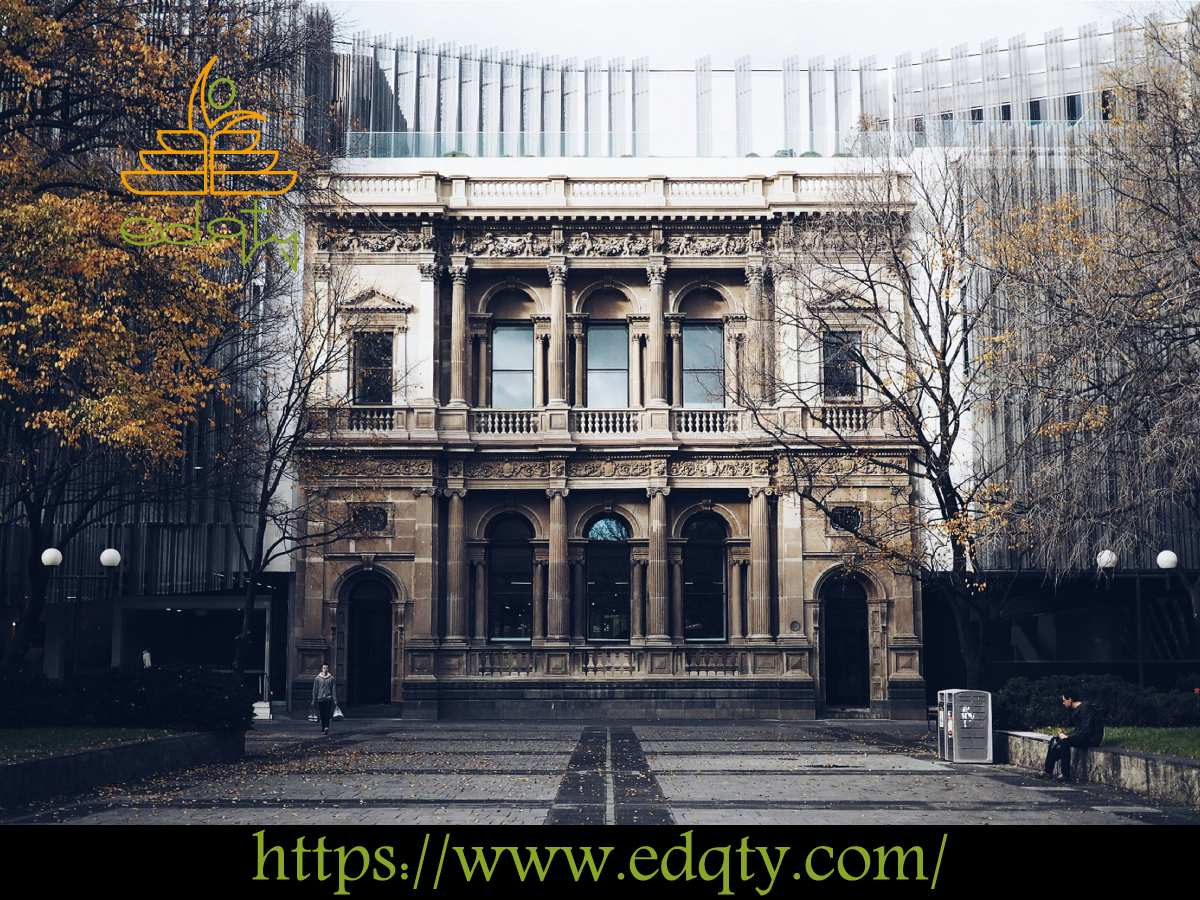Forge Your Future: The Ultimate Guide to Australia’s Top Engineering Universities in 2025

Australia stands as a global powerhouse in engineering education and research. For international students in 2025, it offers a world-class learning environment, cutting-edge research facilities, and a vibrant multicultural backdrop. With six of its universities ranked in the global top 100 for engineering and technology, Australia is not just a destination; it’s a launchpad for a global career.
Home to over 1.2 million international students, Australian institutions are renowned for fusing rigorous academic theory with practical, industry-focused application. The nation’s commitment to innovation, particularly in renewable energy, artificial intelligence, and biomedical technology, makes it a premier choice for aspiring engineers worldwide. This comprehensive guide will navigate you through the top universities, in-demand specializations, and the essential steps to begin your journey down under.
Studying Engineering in Australia: 2025 Snapshot
For students considering Australia, it’s crucial to understand the landscape. The nation’s universities offer a breadth of specialized programs in high-demand fields, supported by strong graduate outcomes and a clear pathway to post-study work experience.
| Key Metric | 2025 Outlook |
| Global Ranking Strength | 6 universities in the Top 100 for Engineering & Technology (QS World University Rankings 2025) |
| Average Annual Tuition | AUD $38,000 – $55,000 (Varies by university and specialization) |
| In-Demand Specializations | Renewable Energy, Mining Engineering, Artificial Intelligence, Civil Engineering, Biomedical Engineering |
| English Proficiency | IELTS: 6.5+ overall |
| Post-Study Work Visa | Temporary Graduate visa (subclass 485) offers work rights for 2-3 years post-graduation. |
| Top Paying Graduate Jobs | AI Engineer, Mining Engineer, Renewable Energy Engineer, Software Engineer |
Top Engineering Universities in Australia for 2025
This ranking is based on the latest 2025 QS World University Rankings for Engineering and Technology, reflecting academic reputation, employer reputation, and research impact.
1. The University of New South Wales (UNSW Sydney)
Australia’s #1 for Engineering
A leader in technology and innovation, UNSW is celebrated for its deep industry connections and entrepreneurial spirit. Its state-of-the-art facilities, including the new Science and Engineering Building, are central to its 2025 strategy of providing a world-class research environment.
- Key Engineering Specializations: Civil & Structural, Electrical, Mining, Software Engineering
- 2025 Research & Industry Focus: UNSW excels in photovoltaic and solar energy research through its world-renowned research centers. Strong partnerships with companies like Atlassian (co-founded by UNSW alumni) provide students with unparalleled networking and project opportunities.
- Indicative Annual Tuition (2025): Approx. AUD $52,000
2. The University of Melbourne
A Hub of Interdisciplinary Innovation
Ranked consistently among the world’s elite, the University of Melbourne is a leader in research and interdisciplinary learning. Its Parkville campus is part of a thriving biomedical precinct, fostering groundbreaking health-tech advancements.
- Key Engineering Specializations: Biomedical, Chemical, Software, Electrical Engineering
- 2025 Research & Industry Focus: The university is pioneering research in AI-powered automation for polymer synthesis and developing novel biomaterials for tissue engineering. Its Melbourne Connect precinct is a major hub for digital futures, linking academics with entrepreneurs.
- Indicative Annual Tuition (2025): Approx. AUD $51,000
3. The University of Sydney
Excellence in Advanced and Humanitarian Engineering
With a rich 175-year history, the University of Sydney is at the forefront of advanced engineering, from aerospace to robotics. It also champions a strong humanitarian engineering program, empowering students to create solutions for communities in need.
- Key Engineering Specializations: Aerospace, Mechatronics, Biomedical, Civil Engineering
- 2025 Research & Industry Focus: The Australian Centre for Field Robotics at USyd is a global leader in autonomous systems. The university leverages strong industry partnerships to give students hands-on experience in areas like developing smart infrastructure and next-generation medical devices.
- Indicative Annual Tuition (2025): Approx. AUD $56,000
4. Monash University
Driving Innovation Through Global Partnerships
Monash is renowned for its dynamic, global approach and strong ties with industry leaders like Siemens, Bosch, and major Indian railway corporations. This ensures its curriculum is directly aligned with the evolving needs of the global workforce.
- Key Engineering Specializations: Materials, Chemical, Robotics, Aerospace Engineering
- 2025 Research & Industry Focus: Monash is a leader in advanced manufacturing and sustainable materials. Recent collaborations focus on developing new railway technologies and commercializing research through its Monash Technology Precinct.
- Indicative Annual Tuition (2025): Approx. AUD $50,000
5. Australian National University (ANU)
A Leader in Sustainable and Renewable Energy
Situated in the nation’s capital, ANU is a world-leader in research, particularly in fields critical to global challenges like climate change. Its graduates are highly sought after by governments and international organizations.
- Key Engineering Specializations: Renewable Energy, Sustainable Systems, Mechatronics
- 2025 Research & Industry Focus: ANU’s Institute for Climate, Energy & Disaster Solutions (ICEDS) is at the forefront of the global energy transition. Research highlights include advancements in green hydrogen, developing AI-powered climate adaptation tools, and influencing national policy on sustainability.
- Indicative Annual Tuition (2025): Approx. AUD $49,000
6. The University of Queensland (UQ)
Expertise in Resources and Environmental Engineering
UQ boasts a global reputation for its expertise in engineering linked to the natural resources and environmental sectors. Its location in resource-rich Queensland provides a unique living laboratory for its students.
- Key Engineering Specializations: Mining, Environmental, Civil, Chemical Engineering
- 2025 Research & Industry Focus: Through its Sustainable Minerals Institute, UQ is leading research into eco-efficient mining, mine waste reprocessing, and circular economy principles. International research projects offer students invaluable hands-on field experience.
- Indicative Annual Tuition (2025): Approx. AUD $53,000
7. University of Technology Sydney (UTS)
Where Practice-Based Learning Meets a Tech-Central Location
As Australia’s top-ranked young university, UTS is defined by its practical, industry-embedded approach to education. Located in Sydney’s “Tech Central” precinct, it offers unmatched proximity to the nation’s leading tech companies.
- Key Engineering Specializations: Software, Mechanical, Civil, Telecommunications Engineering
- 2025 Research & Industry Focus: UTS is home to Australia’s largest industrial-scale spacecraft manufacturing facility at its Tech Lab. Its curriculum is built on real-world projects and extensive internship programs with over 1,000 industry partners.
- Indicative Annual Tuition (2025): Approx. AUD $46,000
8. RMIT University
Applied Technology and Global Industry Integration
RMIT has a distinct reputation for applied learning and technology-oriented programs. With a vast network of over 25,000 industry placements, it excels at integrating students into professional environments from day one.
- Key Engineering Specializations: Advanced Manufacturing, Telecommunications, Automotive, Aerospace Engineering
- 2025 Research & Industry Focus: RMIT is a key player in additive manufacturing (3D printing), hosting the Asia-Pacific International Conference on Additive Manufacturing. Its research focuses on AI for manufacturing, bioprinting, and aerospace innovations.
- Indicative Annual Tuition (2025): Approx. AUD $48,000
Your Application Checklist: Enrolling in Australian Engineering Programs
Applying to a top Australian university requires careful preparation. Here is a checklist of key requirements:
- Academic Transcripts: Certified copies of your high school results (for undergraduate) or bachelor’s degree (for postgraduate), with a strong emphasis on mathematics and physics.
- English Language Proficiency: A minimum IELTS score of 6.5 (with no band less than 6.0) or an equivalent TOEFL score is standard. Note that some top universities may have higher requirements.
- Genuine Student (GS) Requirement: The Australian government has replaced the Genuine Temporary Entrant (GTE) requirement with the GS. This involves a set of targeted questions to assess your genuine intent to study in Australia.
- Statement of Purpose (SOP): A well-written essay outlining your motivations, career goals, and reasons for choosing your specific course and university.
- Resume/CV: Detail any relevant internships, projects, or work experience.
- Application Deadlines: Deadlines vary, so check each university’s website. It is advisable to apply 6-8 months before your intended start date.
Funding Your Future: Top Engineering Scholarships for 2025
Australia offers numerous scholarships to make studying more affordable for international students.
- Government-Funded Scholarships: The prestigious Australia Awards Scholarships cover full tuition fees, travel expenses, and a living stipend for outstanding students from eligible countries.
- University-Specific Scholarships: Most universities offer substantial scholarships. For example, the University of Melbourne’s Graduate Research Scholarships provide a fee offset and living allowance for high-achieving research students. Many universities also have dedicated scholarships for engineering students.
- Industry & Private Scholarships: Companies in the mining, energy, and tech sectors often fund scholarships for students in specialized fields.
Pro Tip: Start your scholarship research 12-18 months in advance. Each scholarship has specific eligibility criteria and deadlines that must be met precisely.
Budgeting for Your Australian Dream: 2025 Cost of Living
In 2025, prospective students must demonstrate to the Australian Government that they have access to at least AUD $29,710 to cover one year of living expenses. Costs can vary significantly by city.
| City | Average Monthly Cost (excl. tuition) | Notes |
| Sydney | ~AUD $3,500 | Higher rent, vibrant job market |
| Melbourne | ~AUD $3,300 | Major tech hub, extensive transport |
| Brisbane | ~AUD $3,000 | More affordable, growing city |
| Adelaide | ~AUD $2,800 | Lower rent, excellent lifestyle |
This budget typically covers accommodation, food, public transport, and the mandatory Overseas Student Health Cover (OSHC).
Visas and Post-Study Opportunities: Your Pathway to a Career
Understanding the visa landscape is critical for planning your future in Australia.
Student Visa (subclass 500)
This is the primary visa for international students. Key requirements include:
- A Confirmation of Enrolment (CoE) from your university.
- Proof of meeting the Genuine Student (GS) criteria.
- Evidence of financial capacity.
- A valid Overseas Student Health Cover (OSHC) policy.
- Meeting English language proficiency standards.
Temporary Graduate Visa (subclass 485)
This visa allows graduates to live and work in Australia, gaining valuable professional experience. Please note significant changes have been implemented in 2025:
- Duration: The standard stay period is now up to two years for graduates of Bachelor and Masters by coursework degrees, and up to three years for Masters by research and PhD graduates.
- Age Limit: Applicants must now be 35 years of age or under.
- English Proficiency: The required IELTS score has increased to 6.5 overall, with a minimum of 5.5 in each band.
Your Career After Graduation: High-Demand Engineering Roles
Graduates from Australian universities are highly sought after in a strong domestic and international job market.
| Job Title | Average Annual Salary (2025 est.) | Why It’s In-Demand in Australia |
| Mining Engineer | AUD $130,000+ | Critical to Australia’s massive resources sector. |
| AI/Machine Learning Engineer | AUD $120,000+ | Tech boom and automation across all industries. |
| Software Engineer | AUD $115,000+ | Ongoing digital transformation in finance, health, and logistics. |
| Renewable Energy Engineer | AUD $105,000+ | National push for sustainability and green hydrogen projects. |
| Civil Engineer | AUD $100,000+ | Major government and private investment in infrastructure. |
Salary data is indicative and varies based on experience and location.
Conclusion: Is an Australian Engineering Degree Right for You?
Choosing to study engineering in Australia in 2025 is an investment in a future-proof career. The combination of academic prestige, hands-on learning through deep industry links, and a focus on solving real-world problems provides an unparalleled educational experience. Graduates are not only equipped with a world-class degree but also with the practical skills, global perspective, and professional network to become leaders in their fields.
Whether your passion lies in designing sustainable cities, pioneering AI, or developing life-saving medical technologies, the journey starts here. Explore the university programs that excite you and take the first step towards transforming your engineering ambition into a flourishing global career.
Disclaimer:
The information provided in this guide—including university rankings, indicative tuition fees, estimated living costs, potential salary figures, and scholarship details—is for general informational purposes only and is subject to frequent change by universities, government bodies, and market forces.
Furthermore, Australian immigration policies, including the criteria for the Student visa (subclass 500), the Genuine Student (GS) requirement, and the Temporary Graduate visa (subclass 485), are complex and can be amended at any time by the Australian Department of Home Affairs.
This content does not constitute official educational, financial, or registered immigration advice.
Before making any financial, educational, or immigration plans, you MUST verify all current information directly with the official websites of the specific universities you are interested in AND the Australian Department of Home Affairs.
Reliance on any information provided in this article is solely at your own risk.




